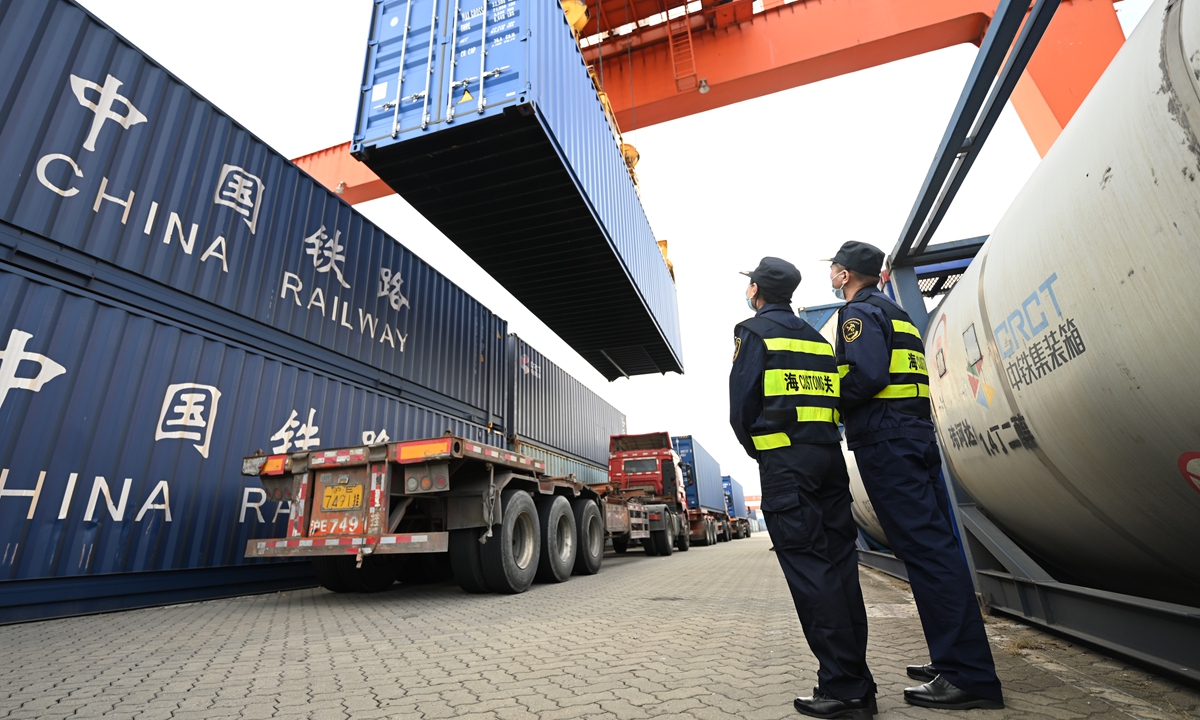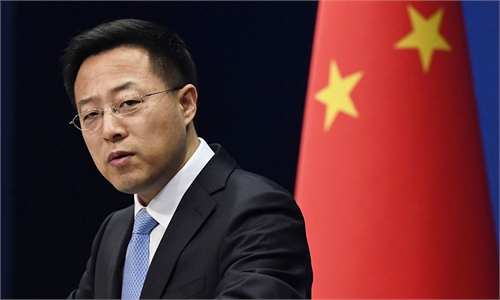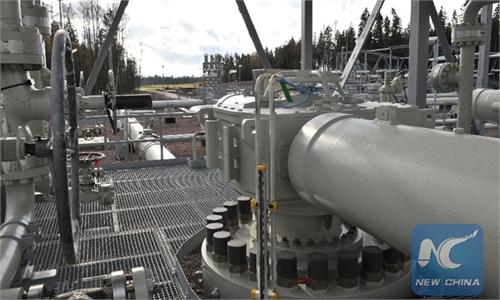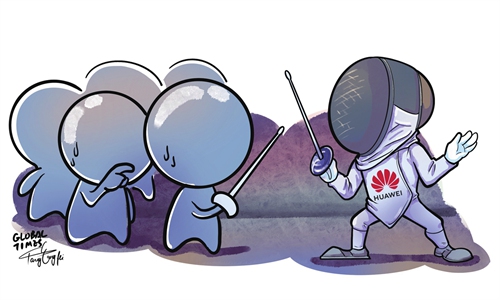
Customs staff check cargo brought by the first CIIE China-Europe freight train from Hamburg to Shanghai on October 29, 2021. It is the first time for exhibits of the China International Import Expo (CIIE) to be sent by a freight train to the city. A total of 35 containers with goods weighing about 460 tons were carried. Photo: VCG
The main reasons behind the difficulties and setbacks in China-EU relations are the EU launching unilateral and illegal sanctions based on disinformation, which led to a situation unwanted by both sides, China's Ministry of Foreign Affairs on Tuesday said in response to EU high representative for foreign affairs and security Josep Borrell's evaluation of bilateral ties in the past year.In a statement Borrell released on Monday summarizing the past year, the diplomat wrote: "On China we maintained EU unity, recognizing that the EU sees the country as a partner, competitor and systemic rival, all at the same time."
Borrell also mentioned China's human rights situation, its reciprocal sanctions and the so-called coercion of Lithuania which has greatly challenged China over the Taiwan question. The senior EU official concluded that "in 2021, we have worked to defend EU interests and values and strengthen a rules-based global order in this year of transitions. That work must continue in 2022 with all the determination we can muster."
Chinese observers pointed out that the EU's threefold evaluation of China - as a partner, competitor and systemic rival - reflects that the bloc cannot overcome its anxiety amid China's peaceful rise while in the US, the Biden administration has exerted great pressure on its transatlantic ally to join the anti-China front.
Chinese Foreign Ministry spokesperson Zhao Lijian said at Tuesday's routine press briefing that China-EU setbacks in the past year were caused by the unilateral and illegal sanctions, which were launched by the EU against China on the basis of disinformation. These moves have taught a critical lesson as they resulted in the situation that neither side wants to see. Europe should reflect on how its threefold evaluation of China, first stated in a China policy document in 2019, changed China-EU relations and the world, Zhao said.
China and the EU, as the two major autonomous powers in the world, share many interests and strategic consensus. Cooperation far outweighs competition, and areas of consensus far exceed the differences, Zhao said.
Being partners can solve problems while being rivals can only create problems, Zhao said, expressing hope that the EU will respect truth, hold a correct judgment of China, maintain the dominant trend of bilateral dialogue and cooperation and stick to the tune of mutual benefit and win-win relations to jointly push forward the healthy and stable development of China-EU relations and contribute to world stability and prosperity.
Zhao Junjie, a research fellow at the Chinese Academy of Social Sciences' Institute of European Studies, told the Global Times on Tuesday that Borrell's statement already demonstrated their bias against China and an intention of dealing with China from a perspective of values and ideology.
Drawing a lesson from 2021, China and the EU should increase political mutual trust and reduce the risks of misjudgment, Zhao Junjie said.
The expert emphasized that the EU should stick to its autonomy amid US pressure. The EU knows it is unwise to take sides in the rivalry between China and the US, but the reality is the EU is sliding to the US side, especially on values, Zhao Junjie said, citing high-profile media coverage on issues of conflict, including the China-Lithuania tensions over the Taiwan question.
After the Lithuanian provocations by enhancing relations with the island of Taiwan, China downgraded diplomatic relations with the tiny Baltic country and EU member state. The country has since been hyping topics like the so-called China's blockade of Lithuanian goods and China expelling Lithuanian diplomatic staff, which China has refuted repeatedly.
Lithuania has successfully instigated some EU officials to speak on its behalf at the cost of China-EU relations, but Chinese observers warned that the bloc should not be hijacked by one country in its policymaking.




